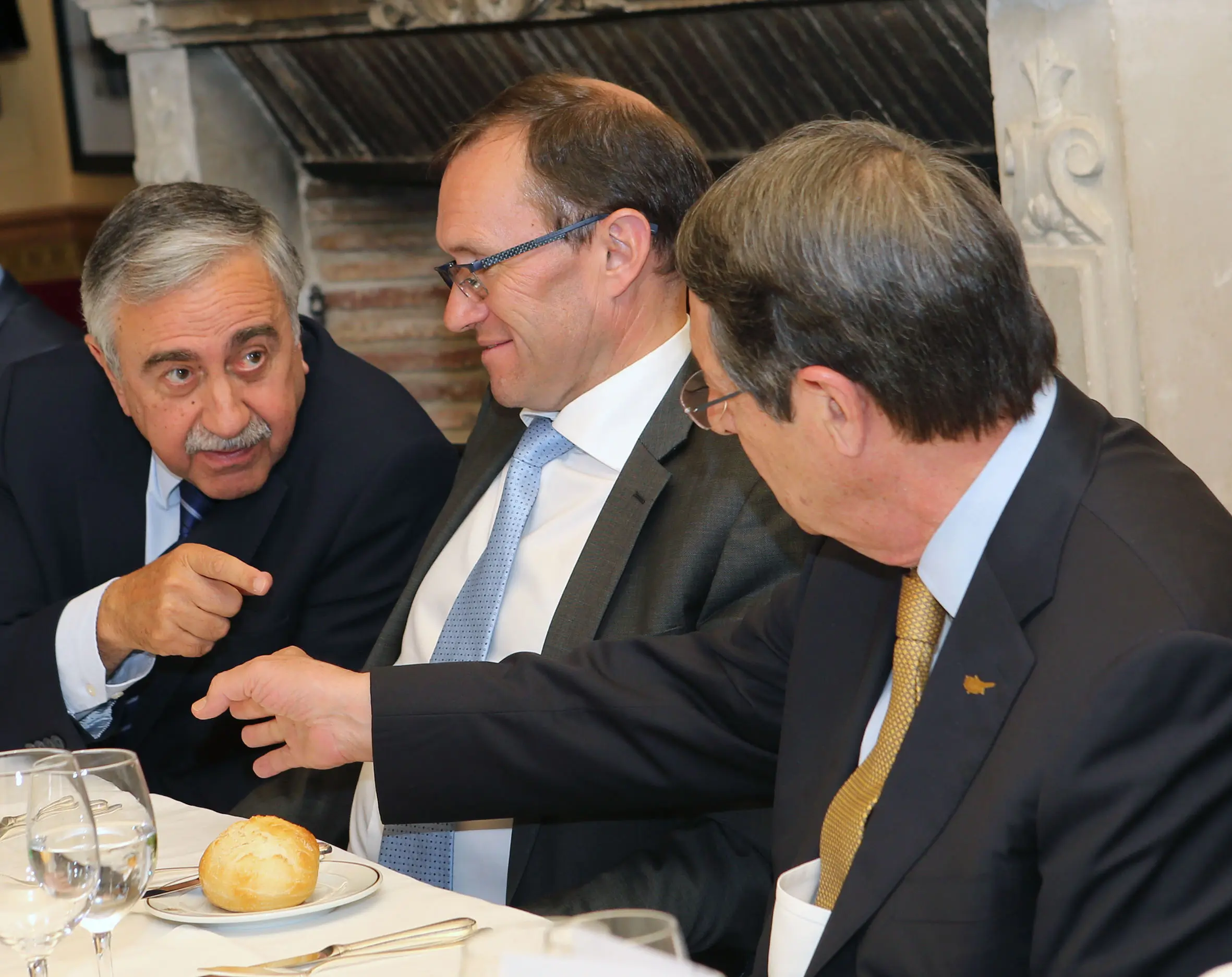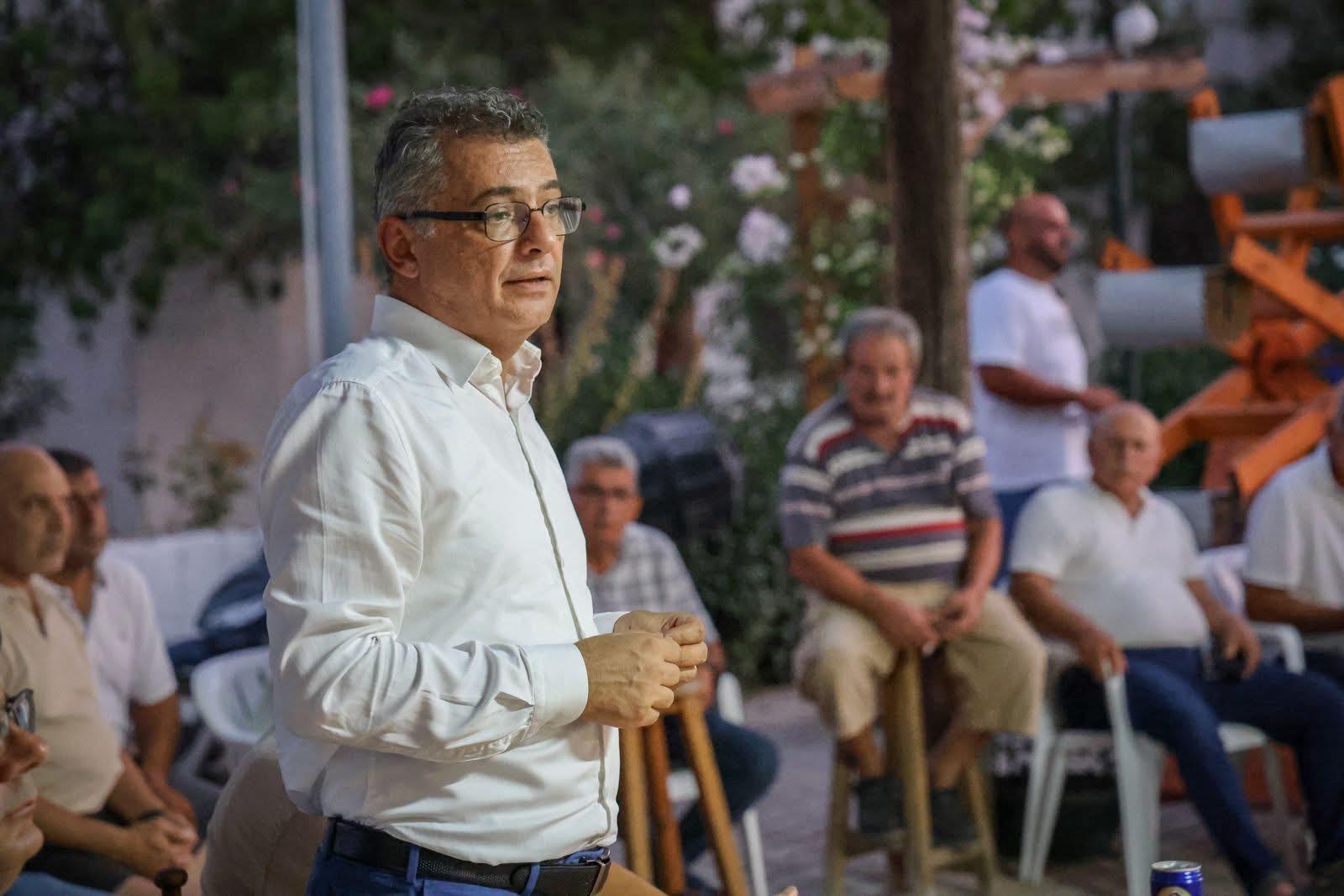Turkish Cypriot leader Tufan Erhurman on Sunday reacted to Norway’s decision to lift its arms embargo on Cyprus by saying that “what is needed in this period is not more armaments, but the cultivation of a culture of dialogue and compromise”.
“Norway’s lifting of its arms embargo after 65 years has added another step to the recent efforts in the south of the island to build armaments and establish military cooperation. We have always stated that such initiative will neither benefit Turkish Cypriots, nor Greek Cypriots,” he said.
He added that efforts by the Republic of Cyprus to militarise itself “clearly negatively impact the search for lasting stability and peace in the region”.
“Everyone should know that such steps, especially in this new era, will not contribute to the expectations and efforts to create an atmosphere for a solution on the island,” he said, before adding that “if the international community wishes to contribute to achieving a just and lasting solution on the island, it must be sensitive to this issue”.
Norway’s Foreign Minister Espen Barth Eide had informed President Nikos Christodoulides on Friday of his country’s decision to lift its arms embargo on Cyprus, with Christodoulides describing the move as “an important step towards enhancing bilateral defence cooperation”.
“I warmly welcome Norway’s decision … to open applications for the export of defence-related and dual-use products for military use to Cyprus. A significant step in strengthening our bilateral defence cooperation,” Christodoulides said.
Erhurman aside, others in the north were also less than impressed by the move, with the ‘foreign ministry’ saying it “contradicts Norway’s traditional peace-orientated foreign policy”.
“It is undeniable that the Turkish Cypriot people and the Turkish Republic of Northern Cyprus will be targeted by any additional weapons which the Greek Cypriot administration may choose to acquire as part of its ongoing arms proliferation efforts,” it said.
It added that the move is “extremely damaging to the increasingly fragile current balance in the eastern Mediterranean” and “falls far short of contributing to stability and security in the region”.
“Lasting peace on the island can undoubtedly only be achieved through the recognition of the equal rights of both peoples and the establishment of an atmosphere of mutual trust. Such unilateral decisions make it difficult to achieve this goal and, on the contrary, jeopardise the current situation,” it said.
It then promised to “resolutely monitor any developments which threaten the security of the Turkish Cypriot people” and said that “we will not hesitate to take all the necessary steps, together with our motherland, the Republic of Turkey, to ensure the security of the TRNC”.
“We call on the Norwegian government to adopt a position based on the realities of the island of Cyprus, supporting regional stability and peace, and to refrain from encouraging the Greek Cypriot side’s provocative attitude and from any such initiatives which could contribute to their proliferation of weapons,” it said.

Earlier, Turkish Cypriot ‘prime minister’ Unal Ustel had also expressed his disappointment at the move, describing it as an “extremely unfortunate step”, and decrying the fact that Eide had previously served as the United Nations’ special adviser on Cyprus before taking up his current post.
“The fact that this decision was announced by someone who had previously served in Cyprus as a ‘peace envoy’ for the United Nations has created a serious contradiction in terms of international diplomacy. This approach, which disregards the security of the Turkish Cypriot people and the delicate balance on the island, is incompatible with the principles of neutrality,” he said.
Defence Minister Vasilis Palmas was of the opposite opinion, meanwhile, saying he was “pleased” by the move, and adding, “we consider it a good development”.
He also made reference to the fact that the United States had in September extended the suspension on its arms embargo on Cyprus for another year, and that a bill has been put forward in the US Senate which would see the embargo be suspended for five years at a time.
That bill is now on the Senate’s order paper, having been put forward by the Senate’s foreign relations committee on October 30.
Should it be passed into law, Palmas said, it will be “very helpful for the better organisation and utilisation of the needs of the National Guard”.
However, the US government remains shut down, with the country’s two main political parties yet to be able to agree to pass a state budget for next year.






Click here to change your cookie preferences